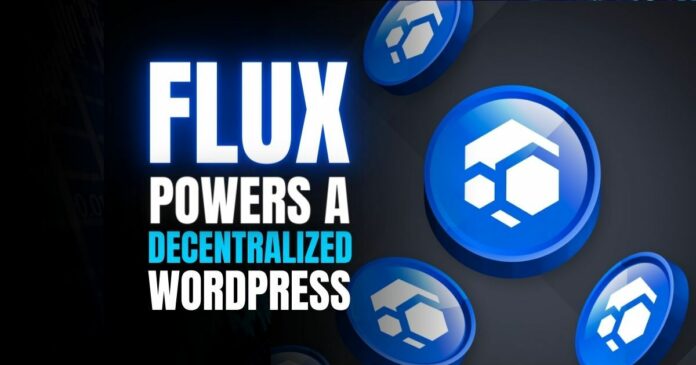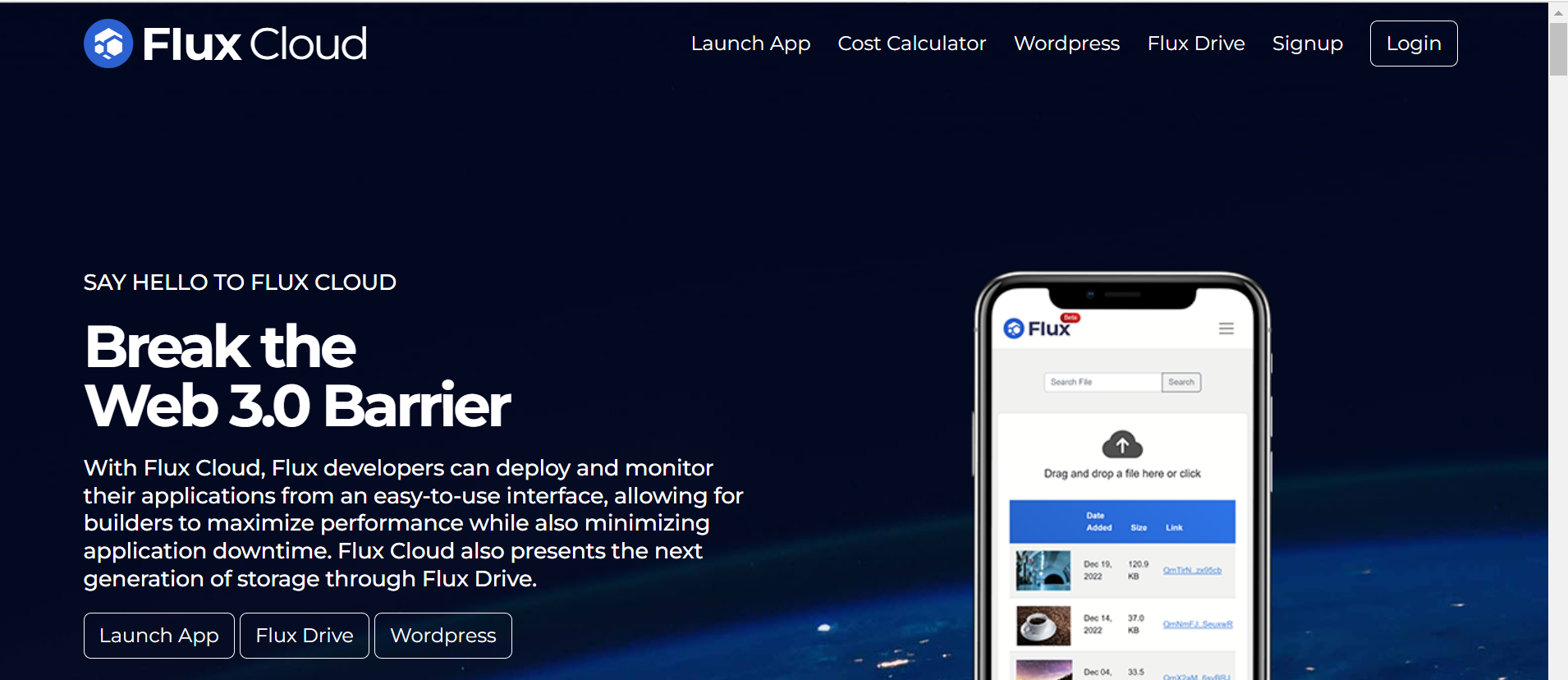Over the past two years, the world has become more aware of the concept of decentralization. This is thanks to a couple of projects. Platforms like Flux are powering a decentralized internet for the future.
Flux is a decentralized Web3 cloud infrastructure. It features scalable, globally distributed computational nodes. And only platform users own and operate the nodes. It seeks to provide the infrastructure for developers to build Web3 applications. Interestingly, that now includes a decentralized WordPress.
LFG, #Flux fam!!!
It took only 2 days on Beta to have 100 WordPress sites running on $Flux! 😎🔥#Web3 FTW pic.twitter.com/ppa8bMg2ZU
— Galouisse, el crabbo 🦀🇧🇴 (@CryptoGSF) March 2, 2023
The Need for a Decentralized WordPress
For close to two decades, WordPress has played a key role in content creation. Statistics show that WordPress powers ~43% of the websites on the internet. There’s little wonder why developers and teams seek to build their sites using WordPress. It is fast and easy to set up, making it a perfect fit for most teams.
Also, WordPress gives customers the choice to increase the functionality of their websites by adding plugins. So, despite being designed as a blogging tool, WordPress’ open-source nature gives it the flexibility to build more sophisticated applications like forums, e-commerce websites, and literally any type of website.
Thanks to these advantages, running a website on a decentralized infrastructure seems like a better idea. But how? Let’s find out.
Just tried out #WordPress on #Flux for the first time! Very exciting overall! Definitely has room for more improvements thou. Check it out here! #web3 @RunOnFlux https://t.co/69laIUaNXY
— Modo Tech (@ModoTech2021) March 13, 2023
Why Flux?
Flux has made it possible for entrepreneurs, programmers, and other users to host their WordPress websites on a sizable, decentralized cloud infrastructure. Are there any advantages? Yes, there are. Check out this article to understand Flux’s decentralized service and how it compares to that of Web2 companies.
The first advantage of running your WordPress site on the decentralized cloud infrastructure is that it offers performance and scalability. Flux’s infrastructure design means WordPress websites are both optimized and fast. The platform hosts its nodes on enterprise-class hardware, which enables the server to achieve faster response times.
This article compares WordPress’s performance and response times on Flux against traditional web2 hosting.
How soon do you guys think @WordPress @wordpressdotcom #wordpress will take the #1 spot on the $Flux top revenue apps list?
Comment your answer below.#wordpresswebsite #Flux pic.twitter.com/ZktVdsxSFT
— Johnny Cash 💸 (@pitox) March 8, 2023
Web2 hosting platforms have downtime issues. However, Flux operates differently. It runs a network of horizontally redundant nodes, ensuring that applications stay running even if one node goes down. This leads to increased uptime and high availability for WordPress websites powered by Flux.
Let’s look at other advantages of using Flux-powered WordPress.
Cost Friendly
Compared to other solutions, hosting WordPress on Flux is less expensive and more cost-effective. WordPress hosting solutions, for instance, cost $2.75 per month on Bluehost and roughly $9.99 per month on Godaddy.
For bloggers, small enterprises, and startups operating on a tight budget, Flux offers an option that maintains speed and performance for just $2.74. At beta release, only the standard version, which costs 6.84 $FLUX will be offered. Future payment options will include a fiat ramp that will let customers pay using fiat money, and there are ongoing efforts for a $FLUX cryptocurrency payment option as well.
User Friendly
Most hosting platforms are too technical for the average person. But Flux keeps things simple and easy. The process requires little or no technical expertise. With the one-page install option, users can quickly register their website and have it running on the Flux cloud. The process includes registering the website, selecting the node tier to use, paying for it, and then deploying it.
Seeing these obvious benefits, WordPress on Flux opens up fresh opportunities for the Web3 ecosystem. WordPress already has plugins for incorporating decentralized functionality, and Flux’s decentralized backend could possibly be the final missing element.
Now you can try the world's first Web3 @WordPress on our $Flux Cloud! pic.twitter.com/B8QMUEsOsH
— Salageri.eth (@Salageri) February 28, 2023
WordPress users would also enjoy existing features powered by the launch of the Flux IPFS. So, users now have access to decentralized storage to save their files directly on the Flux ecosystem. This offers users increased capacity, easy backup, and retrieval systems. This site explains how to run WordPress on Flux.
Also, the $FLUX token has its utility because it powers the entire system.
⬆️ FLUX is available on a few exchanges, including Binance.US for our American readers. Also, did you know that on Binance US, you can get whitelisted for the Cristiano Ronaldo first official NFT collection, receive his free souvenir NFT, and earn $500? Just click this link.





























